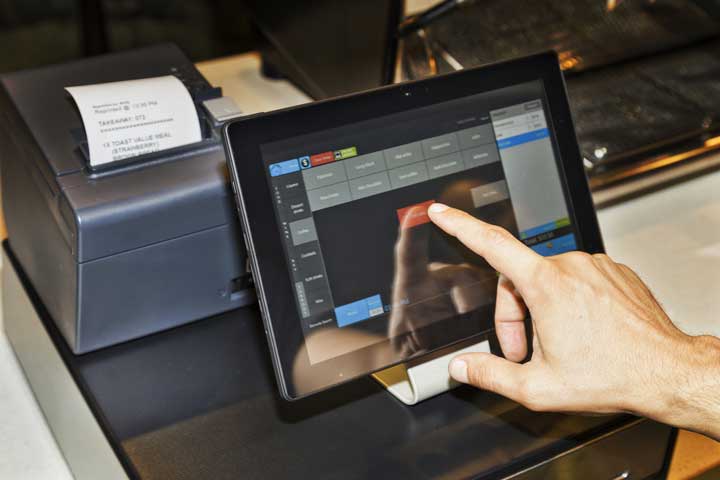Point of Sale (POS) systems stand as the backbone of retail businesses, pivotal in ensuring seamless sales transactions and optimizing customer interactions. In the contemporary retail landscape, the significance of POS systems extends beyond merely processing payments. These systems encompass a suite of functionalities that streamline operations, enhance customer experiences, and provide invaluable insights into business performance.
Evolution of Point of Sale Systems
The journey of POS systems began with mechanical cash registers, revolutionizing the way businesses managed transactions. Over time, technological advancements propelled the evolution of POS solutions. From electronic cash registers to computer-based systems and now sophisticated cloud-based software, the metamorphosis has been remarkable. Today’s POS systems integrate cutting-edge technologies such as AI, IoT, and mobile applications, empowering retailers with unprecedented capabilities to drive efficiency and profitability.
Key Features and Functionalities
POS systems encompass a diverse range of functionalities that elevate retail operations:
- Sales Processing: These systems enable swift and accurate processing of transactions, empowering users to add items, apply discounts, accept various payment methods, and generate receipts or invoices seamlessly.
- Product Catalog Management: Centralized management of products within the POS system facilitates easier inventory control. It includes tasks like adding new products, updating prices and descriptions, managing stock levels, and categorizing items for efficient sales processes.
- Barcode Scanning and Printing: Barcode scanning expedites item entry, providing real-time pricing information and updating inventory levels. Additionally, POS systems support barcode printing for new products or generating product labels, enhancing inventory management efficiency.
- Customer Management: POS systems capture and store customer information, enabling businesses to create and manage customer profiles. These profiles allow for tracking purchase histories, implementing loyalty programs, applying discounts, and tailoring personalized experiences to enhance customer satisfaction and retention.
- Promotions and Discounts: These systems empower businesses to create and manage diverse promotions, discounts, and special offers. Integration of these offers into the sales process ensures accurate pricing and a positive shopping experience for customers.
Advantages of Implementing a POS System
Implementing a POS system yields multifaceted advantages:
- Efficiency: POS systems streamline sales processes, significantly reducing transaction times and minimizing errors in processing.
- Enhanced Customer Service: Through personalized experiences, quick transactions, and efficient service, POS systems contribute to heightened customer satisfaction, leading to increased loyalty and positive brand perception.
- Optimized Operations: These systems provide invaluable insights into sales patterns, inventory levels, and customer behaviors. Utilizing data analytics, businesses can make informed decisions, optimize inventory management, and identify opportunities for growth and improvement.
Choosing the Right POS System
Selecting the most suitable POS system for a business involves a comprehensive evaluation of various factors:
- Scalability: The system should accommodate the business’s growth and evolving needs without compromising performance.
- Integration Capabilities: Compatibility with existing systems and potential for integration with other tools is crucial for seamless operations.
- Cost Considerations: Balancing the features offered against the cost involved is vital. While opting for a cost-effective solution is tempting, ensuring that essential functionalities are not compromised is equally important.
- User-Friendliness: A user-friendly interface and ease of operation are critical for efficient adoption by the staff.
Conducting thorough research, seeking recommendations, and reviewing case studies or testimonials from similar businesses can aid in making an informed decision.
Tips for Maximizing POS Benefits
To fully harness the benefits of a POS system, businesses should consider:
- Employee Training: Comprehensive training programs ensure that staff members are proficient in utilizing the system, thereby maximizing its potential.
- Regular Updates and Maintenance: Consistent updates and maintenance of the POS system ensure optimal performance and security, preventing potential disruptions to operations.
- Utilizing Data Insights: Leveraging the data collected by POS systems can be instrumental in identifying trends, understanding customer preferences, and making strategic business decisions.
Future Trends in Point of Sale Technology
The future of POS technology holds exciting prospects:
- AI Integration: AI-driven POS systems will enhance customer experiences through personalized recommendations and predictive analytics.
- IoT Advancements: Integration with IoT devices will enable real-time inventory tracking and automate reordering processes, optimizing inventory management.
- Mobile POS Solutions: The rise of mobile-based POS solutions will offer greater flexibility, allowing businesses to conduct transactions anywhere, fostering a seamless omnichannel retail experience.
Takeaway
The significance of POS systems in modern retail cannot be overstated. These systems go beyond transaction processing, playing a pivotal role in optimizing operations, enhancing customer experiences, and providing actionable insights for business growth. To explore further or implement a suitable POS solution for your business, consulting with experts in the field is advisable.

